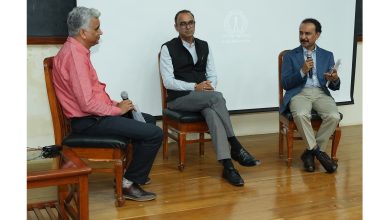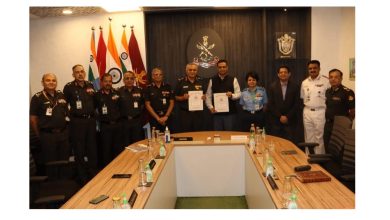KHPT, Central TB Division, USAID organise 51st Union World Conference on lung health

A panel discussion was held on latent tuberculosis infection
Karnataka Health Promotion Trust (KHPT), in collaboration with the Central TB Division (CTD) and the United States Agency for International Development (USAID), organised a panel discussion on Latent Tuberculosis Infection (LTBI) at the 51st Union World Conference on Lung Health. The conference witnessed a gathering of clinicians and public health workers, health programme managers, policymakers, researchers and advocates working to end the suffering caused by lung disease, with a focus specifically on the challenges faced by low-and lower-middle income populations. The conference, which this year highlights the importance of advancing prevention for lung disease, was streamed online due to the pandemic situation.
The panellists included Dr Kuldeep Singh Sachdeva, Deputy Director General- Tuberculosis, CTD; Dr Reuben Swamickan, Chief of Infectious Diseases Division, USAID/India; Dr Karuna Sagili, Senior Technical Advisor, TB & Communicable Diseases, The Union South East Asia (The Union), India; Dalbir Singh, President, Global Coalition Against TB (GCAT); Mohan HL, Chief Executive Officer, KHPT; and Sunitha D, a 32-year-old TB survivor from Karnataka. They presented a wide range of issues including the roles of policy and community in addressing LTBI in India, the importance of a community-centred approach, leveraging community networks and policy initiatives to address LTBI.
“It is well established that a focus on TB alone will not contribute to the reduction in future incidence. TB preventive treatment for people with LTBI is equally important to reach our goal of eliminating TB,” said Dr Sachdeva. He acknowledged the contributions of USAID,
KHPT and other partners for bringing in the much-needed focus on LTBI, through initiatives such as their ‘Breaking the Barriers’ project. “To succeed, we need a collaborative and concerted effort from not only the government but also from other stakeholders such as, private sector, community organisations, civil society organisations and, most importantly, the community itself,” added Dr Sachdeva.
Addressing the key role of global partnerships, Dr Swamickan said, “An absence of active community participation and patient-centric approaches for vulnerable populations has resulted in missing TB cases and high proportion of sub-optimal treatment outcomes. In alignment with National Strategic Plan (2017-25), USAID focusses on building resilience and self- reliance through its close engagement with CTD.”
Dr Swamickan recommended that TB preventive therapy is an essential component of a comprehensive TB care and management strategy and that the national program and its partners collaborate to enable a comprehensive roll-out of preventive services across the country.
Dr Sagili talked about the importance of leveraging community networks to address LTBI. “The active engagement of TB survivors during programmatic management of LTBI, from policy to implementation, monitoring and evaluation will ensure that we are able to plug the ‘leak’ from the TB care cascade,” she said. “Collaborations with other health department activities like maternal and child health care could also help in the optimal utilization of limited resources.”
Singh spoke about GCAT’s policy initiatives in helping shape the National TB programme and highlighted the gaps in testing for LTBI and the need to empower communities to lead the TB response. Mohan HL, spoke about KHPT’s experience in implementing TB patient-centred interventions with a strong community engagement component, and talked about the Breaking the Barriers project, which will address the structural and underlying barriers to behaviours that exist within marginalised communities and develop strategies to improve treatment outcomes among these vulnerable populations.
Sunitha talked about her personal journey with TB, from diagnosis to recovery, and shared her message for persons with TB. “Do not be afraid if you have TB, it is not a permanent disease it is curable. You must follow proper treatment procedure and complete the course, you have to stay strong and overcome it,” she said.




